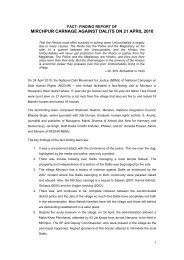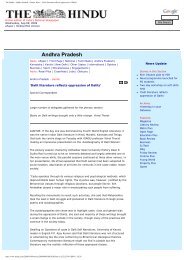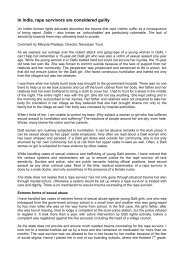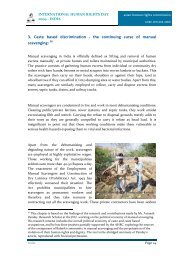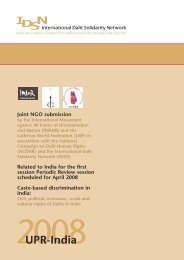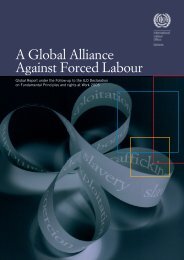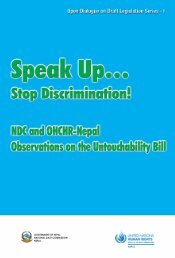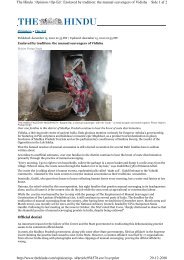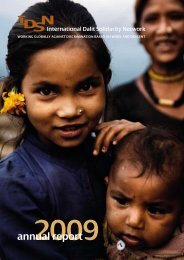equal by law, unequal by caste - International Dalit Solidarity Network
equal by law, unequal by caste - International Dalit Solidarity Network
equal by law, unequal by caste - International Dalit Solidarity Network
You also want an ePaper? Increase the reach of your titles
YUMPU automatically turns print PDFs into web optimized ePapers that Google loves.
322 Wisconsin <strong>International</strong> Law Journalexert 100 percent reservations. In<strong>equal</strong>ity of opportunity is the socialnorm and one that the state has stepped in to legislate against in order tosecure <strong>equal</strong>ity of respect and concern for its most marginalizedinhabitants. Left to its own devices, Indian society would no doubtswallow <strong>Dalit</strong>s whole. Until now at least, the Indian Supreme Court hasagreed.5. INDIAN SUPREME COURT JURISPRUDENCE ON RESERVATIONSAccording to comparative constitutional <strong>law</strong> scholar Jacobsohn,each nation’s constitution contains a vision of the kind of polity it seeksto preserve and to become, which combines distinctive aspects of thecountry’s political culture with features of a universal culture ofconstitutionalism. 369 Jacobsohn refers to the gap between the idealespoused in a constitution and the societal status quo as the “disharmonicjurisprudential context,” within which courts have incentives andopportunities to learn from the constitutional approaches of othercountries, although they may also incur costs in doing so. 370Indeed the Indian judiciary has on numerous occasionstriumphantly stepped into such a disharmonic context to attempt toharmonize India’s constitutional vision with the a<strong>by</strong>smal condition of<strong>Dalit</strong> social reality (borrowing in some cases from the Americanexperience). The jurisprudence of the Indian Supreme Court has to datelent much credence to this ethos. In ABSK Sangh v. Union of India, 371Justice Chinnappa Reddy noted that,[W]hen posts . . . are reserved . . . to members of Scheduled Castes,Scheduled Tribes and other socially and economically BackwardClasses it is not a concession or privilege extended to them, it is inthe recognition of their undoubted fundamental right to <strong>equal</strong>ity ofopportunity . . . and to secure to all its citizens, justice, social,economic and political and <strong>equal</strong>ity of status and opportunity . . . toensure their participation on an <strong>equal</strong> basis in the administration of369 Gary Jeffrey Jacobsohn, The Permeability of Constitutional Borders, 82 TEXAS L. REV. 1763,1767 (2004).370 Id. Jacobsohn cautions that while the Indian constitution lays out an agenda for social reform,judges who adapt ideas from other countries in order to further this agenda must be aware of thespecific cultural context within which they operate.371 A.I.R 1981 SC 298.



